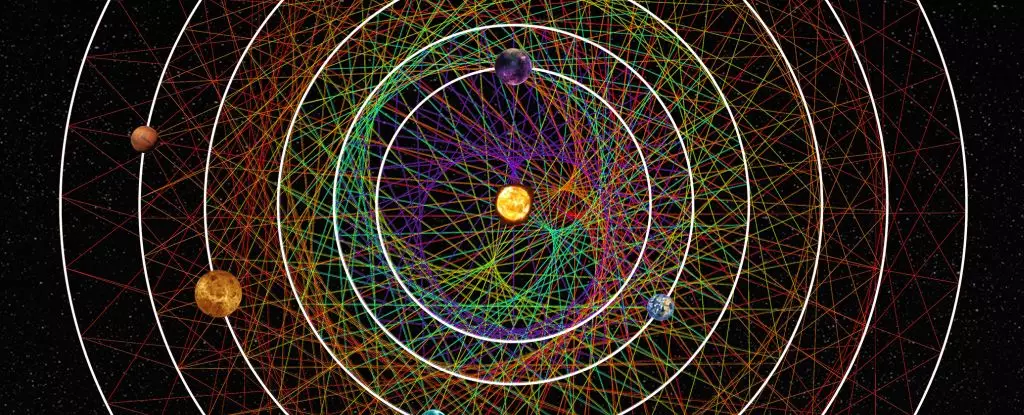Located 100 light-years away from our Solar System lies the HD 110067 planetary system – a system that has caught the attention of scientists due to its remarkable stability and alignment. The star at the center of this system, an orange dwarf known as HD 110067, is surrounded by six exoplanets. What makes this system unique is the perfect chain of orbital resonances observed among these planets, indicating a sense of harmony and stability that has persisted for billions of years.
Astrophysicist Carmen Choza and her team from the SETI Institute have been studying the HD 110067 system in the hope of finding clues that could hint at the presence of alien life. One of the key indicators they have been looking for is technosignatures – signals that could provide evidence of past or present alien technology. Despite an extensive search for such signals, the researchers have come up empty-handed.
Detecting alien technosignatures in the vast expanse of the Milky Way is a daunting task. With limited knowledge about what to look for, scientists often rely on extrapolating from Earth’s technology to make educated guesses about potential signals. HD 110067 presents an intriguing opportunity due to its stability and the presence of potentially habitable planets, making it a prime candidate for further exploration.
To search for alien technology in the HD 110067 system, Choza and her colleagues delved into archival data from the Green Bank Telescope. By analyzing the radio emissions from the system, they aimed to identify any anomalous signals that could point to the presence of advanced civilizations. Despite their efforts, the researchers did not find any conclusive evidence of alien technology in the data.
While the initial search for technosignatures in the HD 110067 system did not yield the desired results, Choza and her team remain optimistic about future endeavors. They plan to revisit the system with more sensitive and diverse search methods in the hope of uncovering signals that may have eluded detection previously. The tantalizing nature of the HD 110067 system, combined with its potential for harboring life, makes it a promising target for continued exploration.
The quest for discovering alien life in the universe is a challenging yet captivating endeavor. The HD 110067 planetary system offers a glimpse into the possibilities that exist beyond our own solar neighborhood, highlighting the vastness of the cosmos and the mysteries that await exploration. While the search for technosignatures may not have yielded immediate results, the pursuit of understanding our place in the universe and the potential for finding extraterrestrial life remains an ongoing and compelling journey for scientists around the world.


Leave a Reply